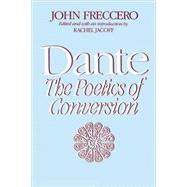
Dante
by Freccero, JohnBuy New
Rent Textbook
Used Textbook
We're Sorry
Sold Out
eTextbook
We're Sorry
Not Available
How Marketplace Works:
- This item is offered by an independent seller and not shipped from our warehouse
- Item details like edition and cover design may differ from our description; see seller's comments before ordering.
- Sellers much confirm and ship within two business days; otherwise, the order will be cancelled and refunded.
- Marketplace purchases cannot be returned to eCampus.com. Contact the seller directly for inquiries; if no response within two days, contact customer service.
- Additional shipping costs apply to Marketplace purchases. Review shipping costs at checkout.
Summary
Table of Contents
| Introduction | |
| The Prologue Scene | |
| The Firm Foot on a Journey Without a Guide | |
| The River of Death: Inferno II, 108 | |
| Pilgrim in a Gyre | |
| Infernal Irony: The Gates of Hell | |
| The Neutral Angels | |
| Medusa: The Letter and the Spirit | |
| Dante's Ulysses: From Epic to Novel | |
| Bestial Sign and Bread of Angels: Inferno XXXII and XXXIII | |
| The Sign of Satan | |
| Infernal Inversion and Christian Conversion: Inferno XXXIV | |
| Casella's Song: Purgatorio II, 12 | |
| Manfred's Wounds and the Poetics of the Purgatorio | |
| An Introduction to the Paradiso | |
| The Dance of the Stars: Paradiso X | |
| The Final Image: Paradiso XXXIII, 144 | |
| The Significance of Terza Rima | |
| Notes | |
| Sources | |
| Indexes | |
| Table of Contents provided by Publisher. All Rights Reserved. |
An electronic version of this book is available through VitalSource.
This book is viewable on PC, Mac, iPhone, iPad, iPod Touch, and most smartphones.
By purchasing, you will be able to view this book online, as well as download it, for the chosen number of days.
Digital License
You are licensing a digital product for a set duration. Durations are set forth in the product description, with "Lifetime" typically meaning five (5) years of online access and permanent download to a supported device. All licenses are non-transferable.
More details can be found here.
A downloadable version of this book is available through the eCampus Reader or compatible Adobe readers.
Applications are available on iOS, Android, PC, Mac, and Windows Mobile platforms.
Please view the compatibility matrix prior to purchase.
